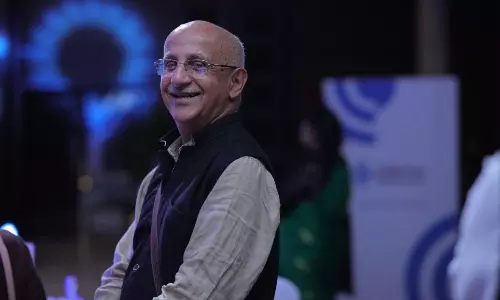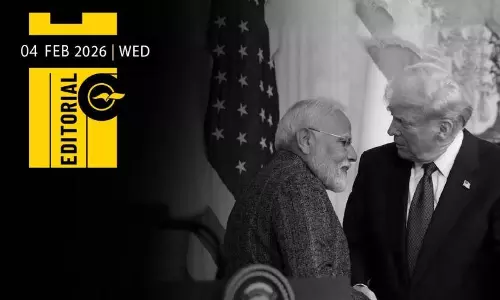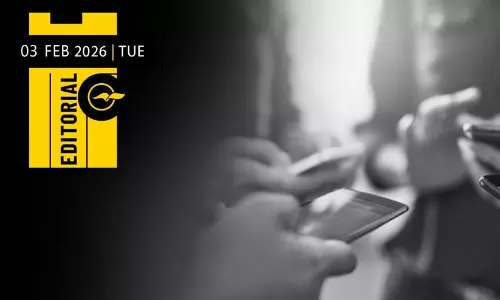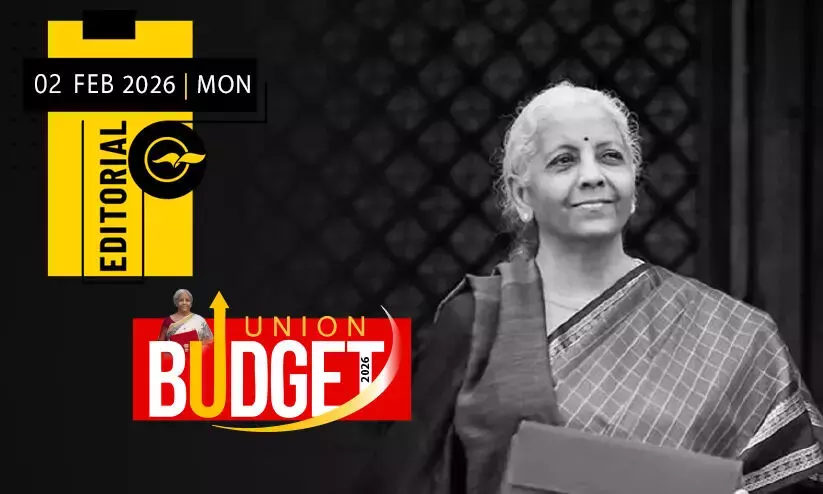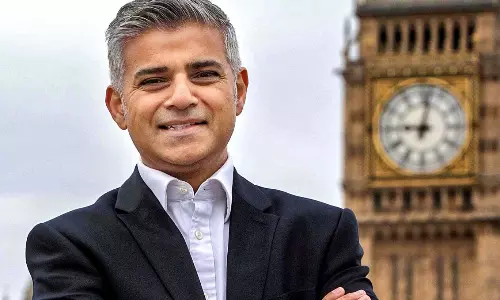
Sacred cows and selective freedom after Charlie Kirk’s death
text_fieldsCharlie Kirk’s funeral last weekend was as much a political spectacle as a memorial. The conservative firebrand’s assassination shocked America. But what followed in the days after his death revealed something deeper than grief: a collapse of principle on free speech.
For years, Western leaders lectured Muslims and others that “to be part of our civilization is to accept the right to offend.” The cartoons mocking the Prophet Muhammad, the Quran burnings, the insults hurled at sacred figures—all of this, we were told, was the price of liberty. Newspapers republished the most offensive caricatures in the name of courage. The rallying cry was “Je Suis Charlie.”
Yet after Kirk’s murder, the “right to offend” vanished overnight. Professors, teachers, comedians, and even ordinary citizens who mocked or criticized him faced suspensions, firings, and investigations. Within days, more than three dozen educators and staff were punished. At Clemson University, two faculty members were suspended and one employee fired after conservative activists circulated screenshots of their remarks. South Carolina’s attorney general, other Republicans, and even Donald Trump demanded action.
It didn’t stop at campuses. Companies and civic groups cut ties with those who mocked Kirk. Employees were fired, charities dropped board members, and judges faced discipline for stray remarks. The chill reached late-night television: ABC suspended Jimmy Kimmel’s show after he mocked the political reaction to Kirk’s death. Public condemnation from regulators blurred the line between private discipline and state pressure. Kimmel was reinstated after public outcry, but the message was clear: the boundaries of expression are narrowing.
Politicians escalated the campaign. A congressman called for lifetime social-media bans and even driver’s licence revocations for those who “belittled” Kirk’s assassination. A Florida legislator threatened to strip professional licences from teachers and doctors who mocked the killing. The U.S. attorney general initially pledged to target “hate speech” about Kirk before narrowing her remarks after critics reminded her that “hate speech” is not a legally recognized exception to the First Amendment.
The backlash spread into schools. In Texas, the governor ordered investigations into hundreds of educators accused of posting anti-Kirk remarks. Oklahoma’s schools superintendent vowed to revoke licences from any teacher who “glorified” the killing. Civil liberties groups warned such threats amount to political intimidation, chilling not only offensive speech but any dissent.
The hypocrisy is glaring. Conservatives who once styled themselves as victims of “cancel culture” are now leading purges. This is especially ironic given that Kirk himself insisted that “hate speech does not exist legally in America… there’s ugly speech, gross speech, evil speech. And all of it is protected.” He thrived on provocation, sparred with students, and even laughed off his South Park caricature. To turn his death into a justification for censorship betrays both his professed principles and America’s.
Nor is the left innocent. Universities and corporations that once defended offensive expression as the essence of academic freedom are now punishing crude or tasteless remarks about Kirk.
The collapse of principle extends beyond America. In Britain, former prime minister Liz Truss, a self-proclaimed free-speech absolutist, demanded Oxford University expel a student who joked about Kirk’s killing.
The law itself is clear. The U.S. Supreme Court has repeatedly upheld offensive speech—from Hustler Magazine v. Falwell (1988), protecting a vile parody of a televangelist, to Snyder v. Phelps (2011), defending Westboro Baptist Church’s hateful funeral pickets. The principle is simple: the state cannot punish speech just because it offends.
Yet in practice, the current crackdown does exactly that. Staff are being fired not for threats or incitement but for unpopular opinions. Politicians are leaning on institutions to enforce orthodoxy. Officials are blurring the law by suggesting “hate speech” is punishable, when it is not.
Every society has its sacred cows. In France, mocking the Prophet Muhammad is defended, but Holocaust denial is criminalized. In India, offending religious majorities has led to bans and arrests. In America, blasphemy against Islam is tolerated, while mocking revered political figures can end careers. What differs is not whether speech is restricted, but which values are shielded from offense.
Charlie Kirk’s murder was a tragedy. Those who celebrated it were indecent, but indecency is not illegality. If free speech means anything, it must mean defending expression even when it wounds us. The very politicians who once told Muslims to endure mockery of their Prophet now insist Americans cannot mock a conservative influencer. That is not principle—it is hypocrisy.




